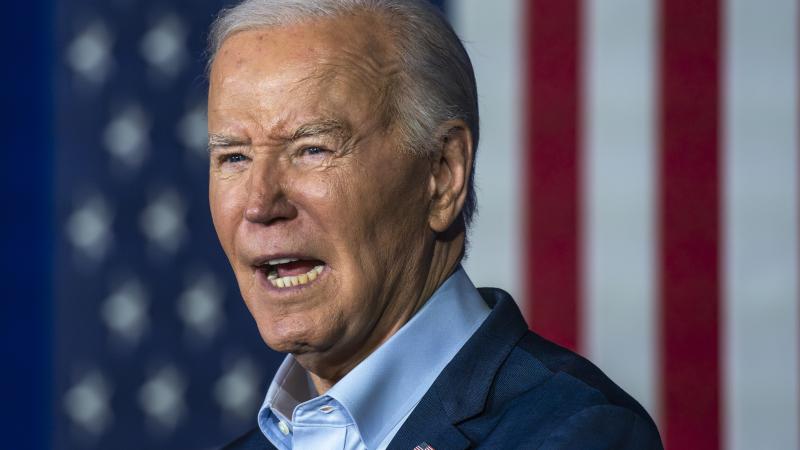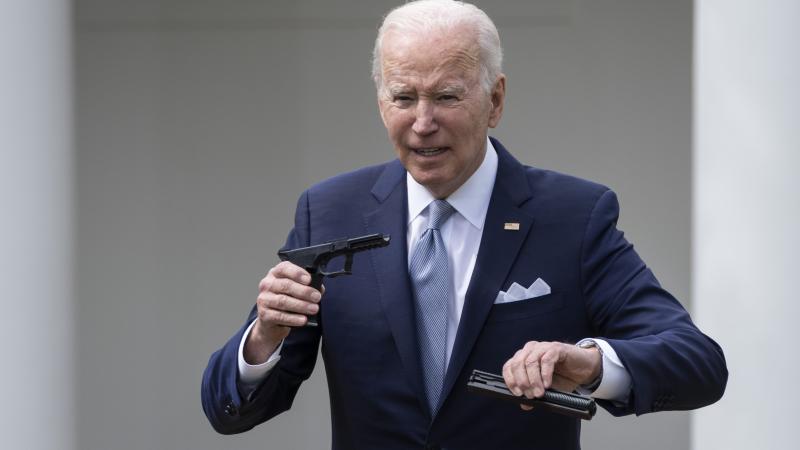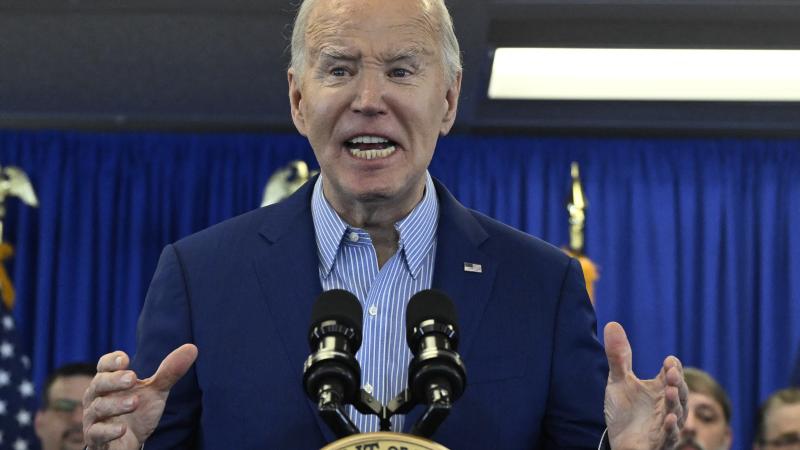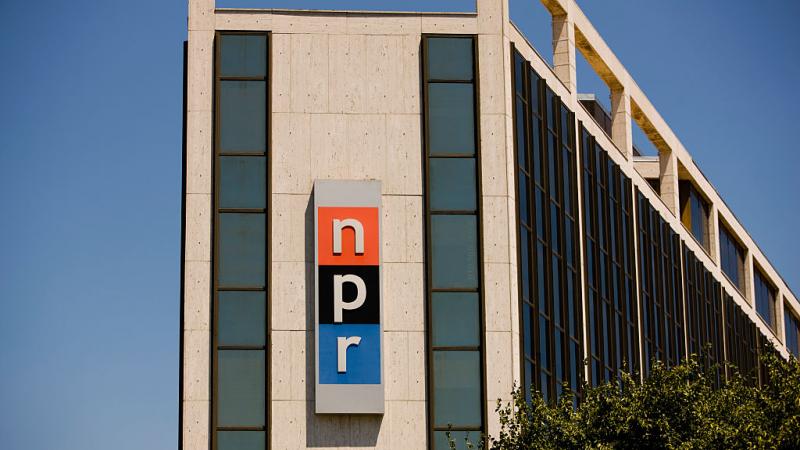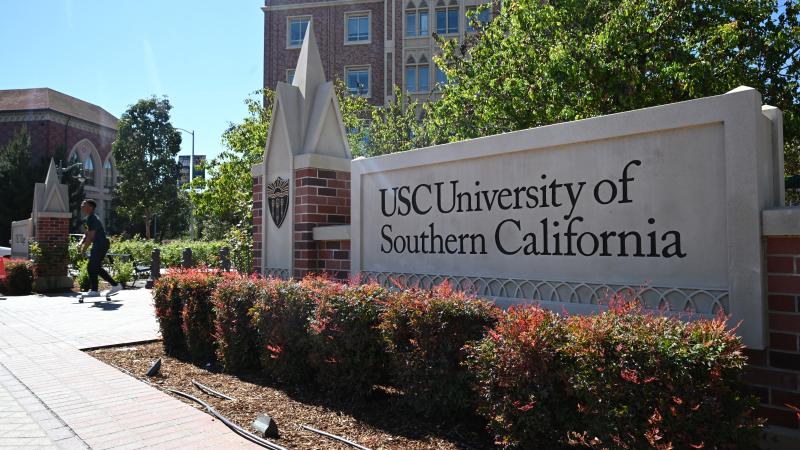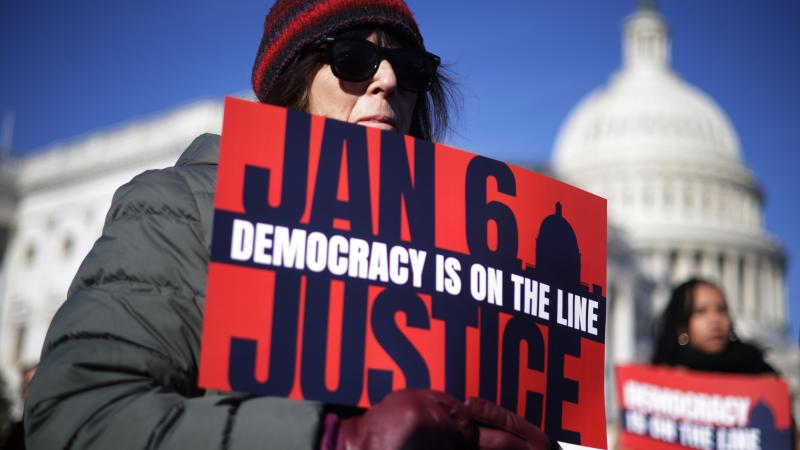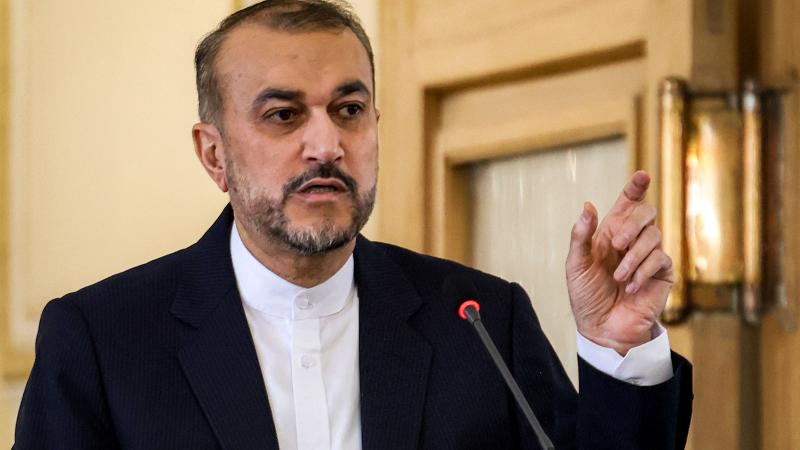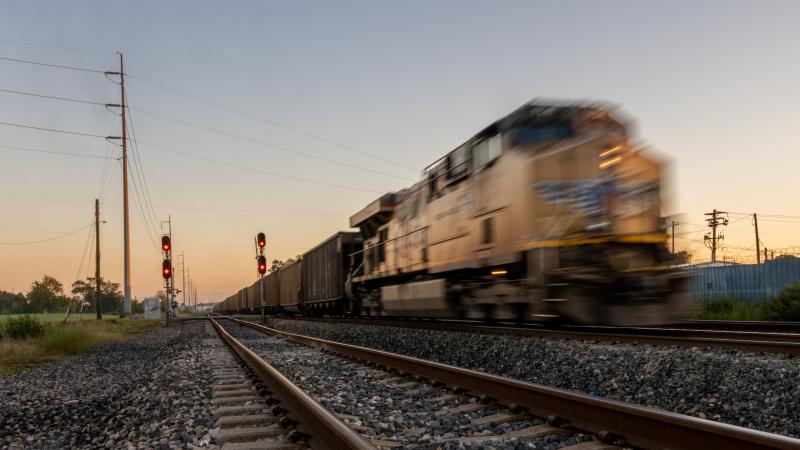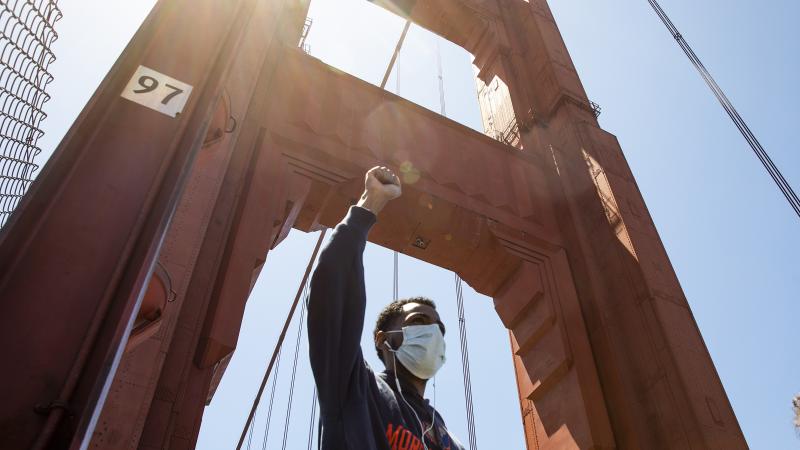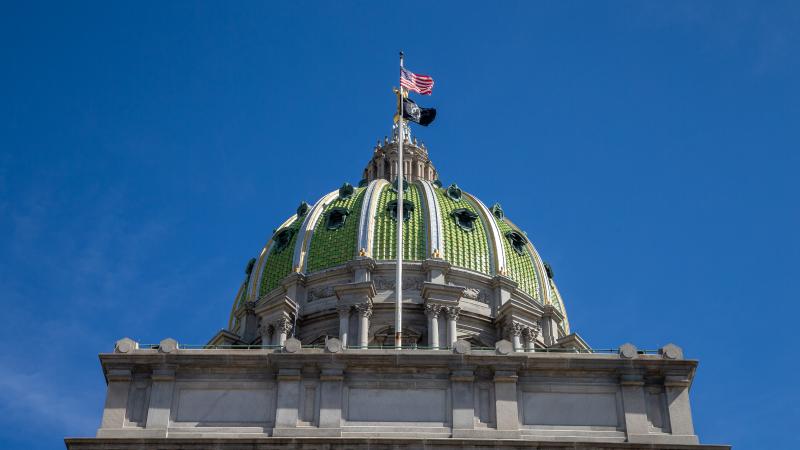From the next FDR to a presidency in turmoil: How Biden's first year in office unraveled
On the anniversary of Biden's inauguration, he finds himself underwater after pursuing a transformative legislative agenda.
As President Biden completes his first year in office, he finds himself in trouble with a stalled agenda and low poll numbers. But this wasn't always the case.
Back in March, Biden hosted a meeting with historians at the White House. For two-plus hours, they discussed big ideas, including how Biden could and should push through historic legislation to change America — the kind of legislation that comes around once in a generation, if not a lifetime.
They also discussed Franklin Delano Roosevelt, with Biden at one point reportedly saying, "I'm no FDR, but ... "
At the time, Biden had already passed a $1.9 trillion COVID-19 relief bill, which included a host of non-pandemic measures supported by Democrats, such as a bailout for struggling union pension plans.
Encouraged by that success, Biden was pursuing a series of historically expensive legislative packages targeting child care, education, infrastructure, green energy, immigration, and a host of other areas. The total price tag was reported to be roughly $5 trillion or $6 trillion. Some Biden supporters said the legislative agenda was a 21st century version of FDR's New Deal, a series of major initiatives enacted by the 32nd president to combat the Great Depression.
Presidential historian Michael Beschloss told Axios after the March meeting that Biden may be this century's analogue of FDR and Lyndon B. Johnson (LBJ) "in terms of transforming the country in important ways in a short time."
It's unclear to what extent Biden and his team shared that view, but they were bullish on passing the president's ambitious agenda for a host of reasons.
Biden's approval rating was solid — well above 50% and in some polls even hitting 60%. Democrats controlled both chambers of Congress. The economic forecast was improving as consumer confidence soared. And articles comparing Biden to FDR and LBJ became commonplace in mainstream publications throughout the spring, summer, and fall of last year. One NPR headline read, "Can Biden Join FDR and LBJ in the Democratic Party's Pantheon?"
Fast-forward several months, however, and Biden's agenda has stalled. His public support has dropped. And the comparisons to FDR and LBJ have stopped.
In November, Congress passed a $1.2 trillion infrastructure bill supported and signed by Biden. But that aside, the president has been unable to pass his top agenda items.
Biden was unable to garner enough votes from his own party in the Senate to pass his multitrillion-dollar Build Back Better Act, which would be the largest expansion of the social safety net in decades. The mammoth spending bill incorporated several aspects of Biden's agenda, which had to be scaled down in hopes of winning over skeptical Democrats.
In December, however, Sen. Joe Manchin of West Virginia, a fellow Democrat, declared he couldn't support the legislation, dooming it unless major changes are made.
Biden appeared to admit defeat for his signature legislation on Wednesday, telling reporters it would need to be cut into pieces to have a chance of passing.
"It's clear to me that we're probably going to have to break it up," said Biden, who added he's been talking to Democratic senators about trying to get as much of it passed as possible and pushing for the rest later.
Biden also admitted in Wednesday's press conference that the Democrats' election reform legislation, his other major priority, will likely not pass, despite his party narrowly controlling the Senate.
"It's going to be difficult," he said. "I make no bones about that, it's going to be difficult, but we're not there yet. We've not run out of options yet, and we'll see how this moves."
Beyond a stalled agenda, Biden is also battling soaring inflation, a stubborn pandemic, a surge in illegal southern border crossings, continued backlash following his decision to withdraw from Afghanistan, an urban crime wave, and a series of legal defeats in the courts — most recently the Supreme Court ruling against his mandate that employees at large businesses must get the COVID-19 vaccine or produce a negative test result.
Still, Biden defiantly defended his first-year record on Wednesday.
"Can you think of any other president that's done as much in one year?" Biden asked reporters. "Name one for me. I'm serious."
Biden's comments came amid a sharp decline in his poll numbers. His approval rating recently dropped to a new low of 33% in the Quinnipiac poll, a new low of 40% in the Gallup poll, and a new low of 40% in the Morning Consult/Politico poll.
This apparent downturn for Biden — from being compared to FDR to facing a stalled agenda and dwindling public support — is "more severe than the usual for a president," according to Tevi Troy, a presidential historian and a senior fellow at the Bipartisan Policy Center.
Troy explained that it was a mistake to compare Biden to FDR and LBJ in the first place, noting that the latter two had much more comfortable Democratic majorities in Congress.
But there are similarities between Biden's first term and Bill Clinton's in the 1990s, according to Troy. Both men campaigned as moderates, he said, but governed much farther to the left, causing them to lose support. Clinton had advantages, though, because he not only was a "more talented and nimbler politician" but also enjoyed an economic boom unlike Biden, who's "saddled with the COVID-19 pandemic."
The Democrats lost a historic number of congressional seats in the first midterm elections following Clinton's election, leading Clinton to govern as more of a moderate moving forward.
Biden so far "has some big accomplishments," said Julian Zelizer, a presidential historian at Princeton University. "But his agenda seems to have no path forward and inflation really looms as a problem for the country."
Zelizer told Politico that it is "certainly not a stalled presidency, but [Biden] starts the new year with lots of trouble."
Biden was elected to a four-year term and has time to turn things around, but he may need to change his approach.
A big reason for the downturn in Biden's presidency in a matter of months, said Troy, is he "promised to be a unifier" but has "governed in a partisan way."
In his inaugural address one year ago, Biden said "unity" was necessary "to restore the soul and to secure the future of America," saying his "whole soul" is committed to bringing the country together.
"We must end this uncivil war that pits red against blue, rural versus urban, conservative versus liberal," Biden said. "We can do this if we open our souls instead of hardening our hearts."
On Wednesday, Biden said he hadn't reached out to Republicans to try to pass his voting legislation. Last week, Biden framed the debate over the Democrats' election overhaul bills as a battle between those who support democracy and those who seek to subvert it.
"Will you stand against election subversion? Yes, or no?" Biden asked. "Will you stand for democracy? Yes, or no? ... Do you want to be on the side of Dr. King or George Wallace? Do you want to be on the side of John Lewis or Bull Connor? Do you want to be on the side of Abraham Lincoln or Jefferson Davis?”
Biden added that former President Trump "and his supporters" want "to suppress your vote, to subvert our elections," saying Democrats should change Senate rules in order to pass their voting bills.
Historically, major legislation has often needed support from both parties to pass, even with strong Democratic majorities. LBJ, for example, sought and garnered Republican support to pass his civil rights and anti-poverty initiatives.
Despite Biden's rocky start, he's not in an unprecedented position. Troy noted that other presidents have had tough first years, citing Herbert Hoover with the 1929 stock market crash, John F. Kennedy with the botched Bay of Pigs invasion, and George W. Bush with 9/11.
"All presidents have challenges," he said. "The question is: How do you deal with those challenges."
"With Biden, thus far the answer hasn't been great."


